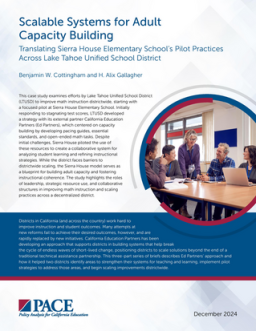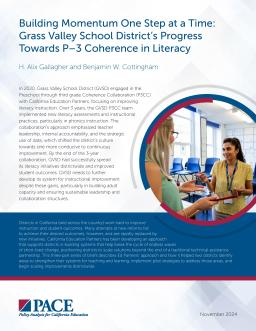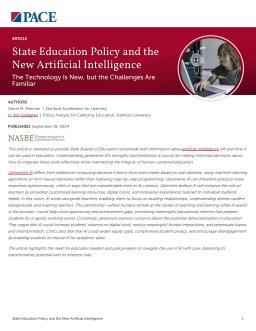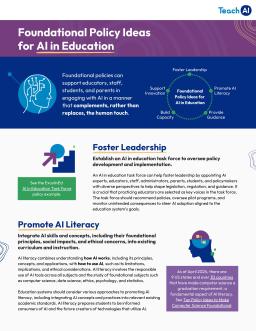Continuous school improvement & support

California and the nation are at the crossroads of a major shift in school accountability policy. At the state level, California’s Local Control Funding Formula (LCFF) and Local Control and Accountability Plan (LCAP) process encourage the use of multiple measures of school performance used locally to support continuous improvement and strategic resource allocation. Similarly, the federal Every Student Succeeds Act (ESSA) reinforces this local control, requiring more comprehensive assessment of school performance and a less prescriptive, local approach to school support.
Calls for “continuous improvement” in California’s K–12 education system are central to current discussions about school improvement in the state. Yet, definitions of continuous improvement vary, and knowledge of what continuous improvement looks like in practice is limited.
PACE research in this area addresses the challenges of those working in this changing accountability landscape by providing descriptions of continuous improvement in diverse educational organizations and by identifying the supports and challenges necessary to take new improvement approaches to scale.
- 1
- 2
- 3
- Next ›







